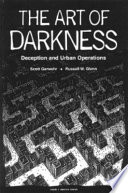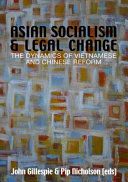Author
Jonathan Pugh ; David Chandler
Year
2021
Publisher
University of Westminster Press
Language
English
Last Update
27-Nov-2025
Keywords
Philosophy ; Biological Sciences ; Sociology
Many Anthropocene scholars provide us with the key take-home message that they are writing ‘after the end of the world’ (Morton, 2013; Tsing, 2015; Danowski and Viveiros de Castro, 2016; Watts, 2018; and Gumbs, 2018 are just some examples). Not because they are necessarily writing about apocalypse, but because they are engaging the Anthropocene after the profound crisis of faith in Western modernity that has swept across academia in recent decades. For these contemporary thinkers, artists, activists, poets, policymakers, and many others besides, modern frameworks of reasoning which claimed to separate out humans from nature – to be able to...
Related
See More
The Art of Darkness, Deception and Urban Operations

A Companion to the Cavendishes

Chinese Working-Class Lives

China

Asian Socialism and Legal Change, The dynamics of Vietnamese and Chinese Reform

George Rochberg, American Composer